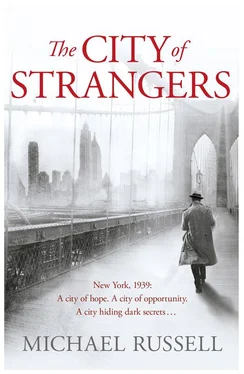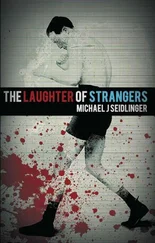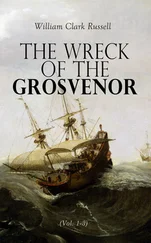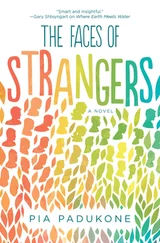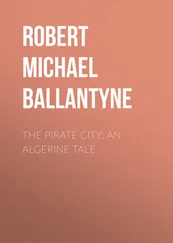‘Do you mind if I have a look at one of these?’
‘Help yourself. I’m going to turn in. We’ll be landing at Botwood in the early hours. It’s best to get some sleep in. You can’t sleep through it.’
On each side of the compartment the seats had been made up into beds while they were at dinner, with curtains across them to create small bedrooms. Dominic Carroll got up and took an attaché case from a rack above. He pulled out a washbag and walked through the plane to the bathroom. Other people were starting to appear in pyjamas, dressing gowns.
Stefan felt relieved to be alone for a moment; if nothing else it was a rest from talking. He opened the newspaper. The first thing he saw was a report about an IRA bomb that had gone off in London the day before.
There had been dozens of bombs across Britain since the beginning of the year. On 12 January the IRA Army Council had sent a letter to the British government, declaring war and claiming it was now the sole representative of the people of Ireland, since the treacherous and toadying government the people of Ireland had voted for several times since 1922 did not have the legitimacy the IRA had inherited, by a process similar to Apostolic succession, from the seven signatories of the Declaration of Independence in 1916.
The quantity of bombs that had followed this declaration of war had been impressive, even if the results had been indifferent. The damage had been minimal; reaction in Britain, despite indignant speeches in Parliament, seemed more like puzzlement than either anger or fear. The targets were sometimes railway or underground stations, mainly in London, and bridges over canals elsewhere; sometimes electricity pylons and gas mains were attacked; sometimes incendiaries were planted, more randomly, in stores like Marks and Spencer, Burton’s, Woolworths; one bomb had gone off at the offices of the News Chronicle in Fleet Street.
Remarkably, no one had yet been killed, in line with the declared intention of the IRA’s chief of staff, Seán Russell. In this most recent attack two bombs had exploded by the Thames, on Hammersmith Bridge. Stefan had heard about it in Dublin.
Two explosions which occurred at Hammersmith Bridge, just after 1 a.m. yesterday morning, are being investigated by Scotland Yard officers. The force of the explosion dislodged two girders in the suspension work of the bridge, and one was thrown across the roadway. Lamp standards were demolished and the middle of the bridge was left in darkness. While investigations at the bridge were in progress, Divisional Detective Inspector Clarke left to interview two men at Putney police station. It was later decided to arrest the two men. They were Edward John Connell, 22, a salesman, of Elibank Gardens, Barnes, and William Brown, 22, of Grafton Place, Euston.
He looked up to see Dominic Carroll opening the curtains into his sleeping compartment, and looking down at him with a wry smile as he did so.
‘Another bomb.’
‘Another bomb,’ replied Stefan; it was familiar news after all.
‘They don’t seem to be able to do much to stop it.’
‘Well, they will if they keep arresting people at the rate they have been. I don’t know what it is now, fifteen, sixteen, and two more yesterday.’
‘You’re assuming the IRA’s short of volunteers then?’
‘There are only so many people who’d know how to plant a bomb.’
‘Well,’ shrugged Carroll, ‘the British must be shaken up by it now.’
‘I would be,’ Stefan nodded. ‘I’d be pretty pissed off if I lived in Barnes and I had to go all the way down to Putney to find a bridge. I wouldn’t put it much stronger than that. Unless London County Council’s very short on lamp standards, I wouldn’t say it’ll keep anybody awake.’
As this conversation had started there had been a look of amused satisfaction on the American’s face. Stefan believed he could read it easily enough. He had sat in pubs with enough American-Irish singers of Republican songs to know that though ‘Up the IRA’ was a cry that was hardly on many lips in Ireland, the enthusiasm in New York and Boston and Chicago was unaffected by the fact that the IRA wasn’t only at war with Britain, it was still ideologically at war with the government of Ireland itself. It wasn’t an argument he intended to start. Carroll could have his opinions.
‘You’re one of Ned Broy’s men all right, Mr Gillespie. Goodnight.’
The words were said with something like a grin, almost with a wink, but there was something colder in the words than anything that had gone before. They were words that no guard could fail to understand, and they came from somewhere that was about more than singing rebel songs.
To be one of Ned Broy’s men was to be more than just a lackey of the illegitimate entity that Republicans still referred to contemptuously as the Free State; it was to be an informer, a traitor, a killer. Wasn’t the Commissioner a turncoat, like de Valera and all his crew, an IRA man himself who had brought ex-IRA men into the Gardaí to hunt down their old comrades, to imprison them, to torture them, sometimes to kill them? And it was true enough. The men Ned Broy had brought into the Garda Special Branch had done all that. Their reasons didn’t make the bare facts any more palatable.
That none of this had anything to do with Stefan Gillespie didn’t mean he couldn’t feel the contempt behind Dominic Carroll’s parting wink, or that he didn’t sense now that the man was no idle wearing-of-the-green, up-the-rebels American-Irish tourist. He was a political Republican, and as a wealthy and influential man in New York he probably mattered in Republican politics, whether it was in America or Ireland, and it was likely both.
Stefan remembered that Carroll had expected him to know who he was. If he really was someone, it was unlikely he hadn’t had a Special Branch tail on him while he was in Ireland, or that he wouldn’t have been aware of it. The suspicion he had shown, on finding a Garda officer sitting opposite him on a plane to New York, with apparently no very good reason to be there, finally made sense.
It was 5.30 in the morning when the Yankee Clipper bumped down into the waters of Botwood, Newfoundland, and was tied up at the end of the long pier at the western end of the small harbour. Stefan Gillespie had not been able to sleep. For a while there had been the rattle of conversation and laughter and the clink of glasses from further down the cabin, where a group of passengers was playing canasta, but it had been silent for several hours now. The soft buzz of the engines, and the occasional grunt and snore from behind the curtains across the aisle, were the only sounds.
It was an odd feeling, cocooned up here, sailing through the night sky. He felt apart, not just from the world below in general, but from his own life in particular. He wasn’t in the habit of stepping back from himself, and he wasn’t entirely sure he liked doing it, but here, hanging in the darkness, it was hard not to do it. There was a lot in his head. Ned Broy and Owen Harris and Dessie MacMahon and Terry Gregory; Valerie Lessingham and Tom and his parents; the wide-ranging conversation with Dominic Carroll, about Ireland and New York and the prospect of war and Hammersmith Bridge and loss and grief and the sheep on the mountainside at Kilranelagh. And he kept coming back to the question a stranger had asked that he hadn’t asked himself in a very long time: what are you doing, sitting on your arse in a country police station, running in drunks?
When the flying boat was down he joined most of the other passengers, pulled on his overcoat, and left the cabin. Dominic Carroll didn’t stir, and he left him snoring quietly. He needed air and he wanted to walk. The air was cold enough. It was still dark. The Yankee Clipper was at one end of Botwood’s small harbour. Across the water he could see the lights of fishing boats coming into dock; there was only the chug of their engines and the sound of the wind, not strong but beating the rigging slowly, like a pulse.
Читать дальше
